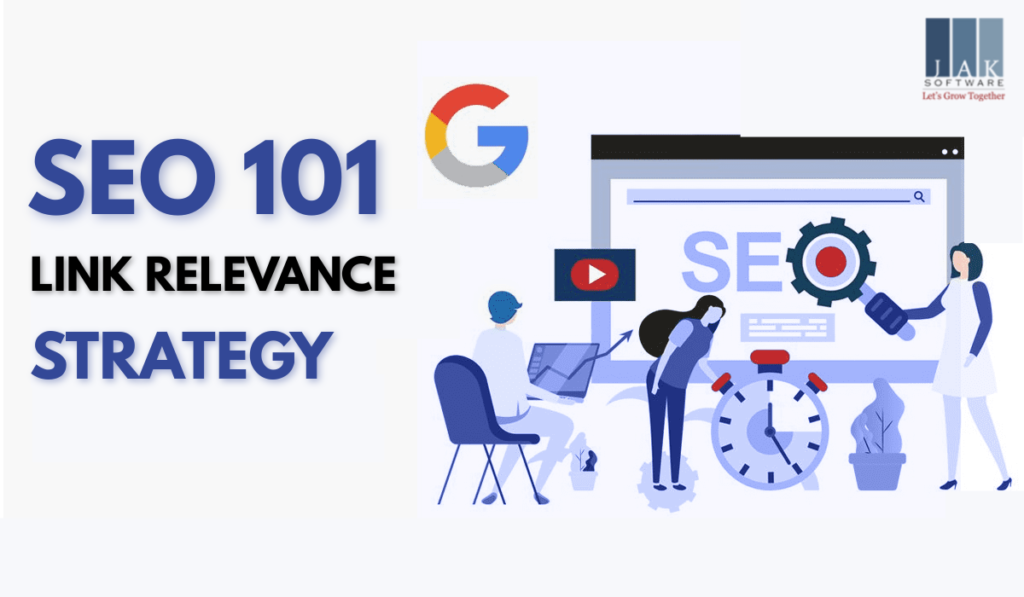Why Link Relevance Matters in SEO Today
Link relevance has become a cornerstone of contemporary SEO, serving as a key factor in how websites establish authority and gain visibility in search engines. When links originate from contextually related and authoritative sources, they act as endorsements — boosting both search rankings and user confidence in your content. The importance of link relevance in SEO is reflected in modern search engine algorithms, which increasingly reward meaningful connections over random or unrelated links. Focusing on high-quality, relevant backlinks enhances both SEO effectiveness and sustainability, thereby boosting a site’s credibility and trustworthiness. Successful strategies prioritize connections with authoritative, related sites, which improves rankings and provides users with valuable, contextually relevant resources.
What Defines Link Relevance?
Link relevance is defined by the relationship between the referring site’s content and your own. If your website offers legal advice, a backlink from an industry association, legal resource, or respected law blog is far more valuable than a link from an unrelated domain, such as a travel or e-commerce website. According to Search Engine Land, understanding the degrees of link relevance helps marketers prioritize backlinks that genuinely enhance authority and user trust. The logic is straightforward: links embedded within relevant content signal that your site is a trustworthy and logical destination for users seeking information about your expertise. This mutual relevance makes the link meaningful to both algorithms and humans.
How Search Engines Evaluate Links
Search engines like Google use sophisticated systems to assess backlink quality. They evaluate factors such as the topical context of the linking page, the anchor text used, and the authority of the referring domain. Updates to Google’s ranking systems have further prioritized the context and relevance of a backlink over simple domain metrics. For example, links from editorial content that naturally reference your business, expertise, or solution carry more weight than links from generic directories or unrelated pages. This targeted evaluation encourages website owners to prioritize organic outreach and focus on building relationships that provide value to their audience.
Search engines now analyze the content surrounding a link, the structure of the referring site, and how closely aligned both domains are in purpose and audience. The more aligned the linking site, the greater the potential SEO benefit.
Balancing Quantity and Quality in Link Building
- Avoid link schemes: Relying on networks, farms, or low-quality bulk links invites penalties rather than progress. Focus on transparency and value.
- Seek contextually relevant sources: Prioritize backlinks from sites with audience and topical overlap. Shared subject matter enhances authority signals.
- Focus on editorial mentions: Value-driven links earned via guest posts, expert contributions, or media placements offer the most long-term benefit.
According to Search Engine Journal, updates to Google’s spam detection algorithms now penalize link practices that favor volume over substance. As a result, it is essential to pursue natural, contextually sound link acquisition strategies that align with user intent.

Industry Insights and Recent Updates
Industry thought leaders and analysts have observed a clear shift: organizations prioritizing quality, relevance, and strategic link building are outperforming competitors who chase links indiscriminately. Stories of SEO success—across startups and large enterprises alike—often involve investments in creating remarkable content and cultivating valuable relationships within their market or community. The consensus continues to emphasize that naturally earned, meaningful links are more resilient to algorithm changes, delivering sustained performance and brand authority.
Best Practices for Earning Relevant Links
- Publish comprehensive, authoritative content such as surveys, expert roundups, or industry analysis to attract organic mentions and editorial backlinks.
- Build networks with industry peers by contributing thoughtful content, collaborating on projects, or offering expert commentary for their audiences.
- Analyze competitor link profiles to identify accessible opportunities from sources already providing links in your niche.
- Regularly audit your backlink profile using tools like Google Search Console or Ahrefs, addressing weak or irrelevant links and reinforcing your strengths.
Case studies consistently highlight that original research, in-depth guides, and expert opinion pieces are magnets for high-authority, contextually relevant links from media publishers, educational institutions, and respected trade associations.
Key Metrics to Track SEO Success
- Volume and quality of referral traffic from relevant domains
- Growth in organic keyword rankings, especially in your target niche
- Diversity and authority of linking domains closely related to your content
- Improvements in domain trust scores and authority metrics
Monitoring these indicators enables a data-driven approach, ensuring your efforts drive positive SEO results and strengthen your overall online presence.
Conclusion: Setting Smart Link Building Goals
Sustainable link building requires a blend of strategy, context, and commitment to quality. By focusing on relevant connections, delivering authentic value, and responding to ongoing industry updates, businesses can enhance their search visibility and foster deeper user trust. Smart, relevance-focused link building remains a critical pillar for any future-focused SEO strategy.

